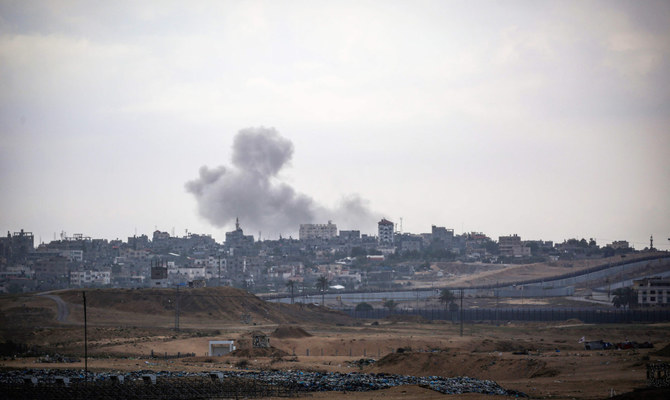NEW DELHI: India said on Wednesday it was working to repatriate the body of a former Indian Army officer serving as a UN staffer, who was killed in Gaza when his vehicle was hit by what the UN said was tank fire in Rafah where only Israeli tanks are present.
The staffer, Waibhav Anil Kale, was working with the UN Department of Safety and Security and was heading to the European Hospital in Rafah along with a colleague, who was wounded in the incident. The UN said he was the first international UN staffer killed in Gaza since the war began on Oct. 7, taking the total UN death toll to 191.
UN Secretary General’s deputy spokesperson Farhan Haq said on Tuesday the UN had set up a fact-finding panel to determine the responsibility for Kale’s death.
“It’s very early in the investigation, and details of the incident are still being verified with the Israeli Defense Force,” he told a press cconference. Asked by reporters about the shots fired on the vehicle, he said, “we believe it came from a tank in the area” and later added, it was “safe” to assume that only the IDF tanks in that region. There are 71 international UN staff members in Gaza currently, he said. The IDF said in a statement on Monday that the incident was “under review” and the IDF had not been made aware of the vehicle’s route. But an initial inquiry indicated that “the vehicle was hit in an area declared an active combat zone.”
The Hamas-run government’s media office accused Israel of “deliberately targeting foreign staff in the Gaza Strip.”
India’s Foreign Ministry said its diplomatic missions were “in touch with relevant authorities” on the investigation into Kale’s death, and helping to bring home his body.
In a statement on Monday after Kale’s death, UN Secretary General Antonio Guterres reiterated an “urgent appeal for an immediate humanitarian ceasefire and for the release of all hostages,” saying the conflict in Gaza was continuing to take a heavy toll “not only on civilians, but also on humanitarian workers.” He has demanded explanations for all their deaths.


























